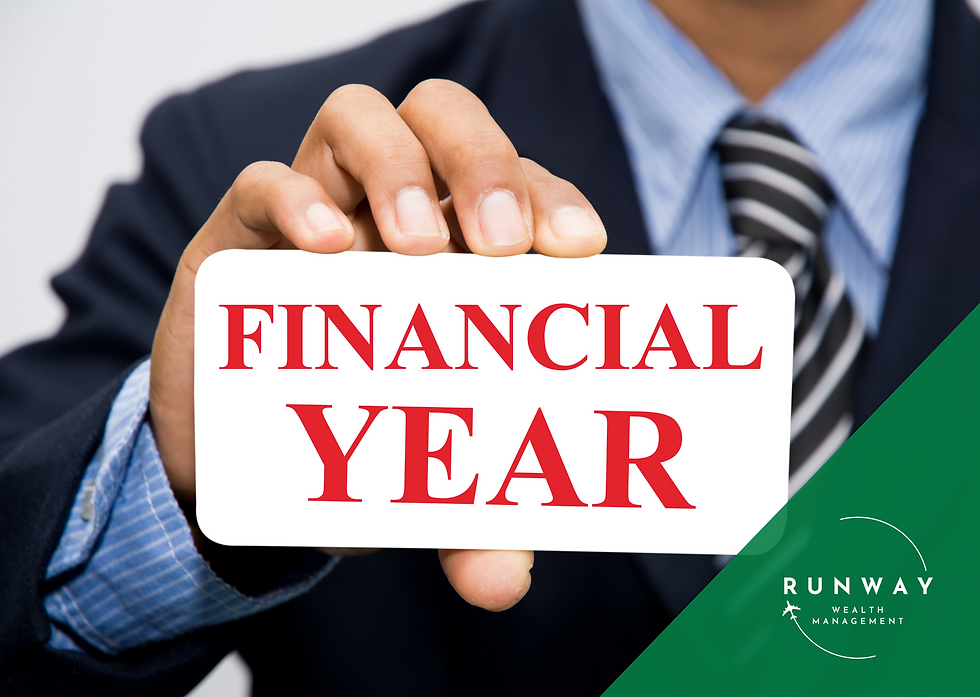Avoid These 5 Common Investing Mistakes Australian Expats Make
- Mitchell Kelsey

- Oct 2, 2025
- 4 min read

Moving overseas as an Australian Expat opens the door to new professional and lifestyle opportunities. However, this new financial environment also presents a different set of rules, risks and requirements.
Investing in shares and other assets while overseas is not the same as investing when in Australia. Without the right guidance, many expats unknowingly fall into traps that can cost them time, money and missed opportunities. In this blog, we will explore five of the most common investing mistakes Australian Expats make and how you can avoid them with smart planning and the right advice.
1. Forgetting About Tax Residency Rules
One of the biggest investing mistakes Australian Expats make is misunderstanding how tax residency affects their investments. Many assume that once they’ve left Australia, they are no longer tax residents. This isn't always the case. If the ATO considers you a resident for tax purposes, your global income, including capital gains, could be taxed in Australia.
Conversely, non-residents are taxed differently, especially when it comes to shares. If you held shares before becoming a non-resident, there are deemed disposal rules that apply which affect the future tax treatment. Failing to clarify your tax residency status can lead to unexpected tax bills or double taxation. It’s vital to seek professional tax advice tailored to your situation before you invest.
2. Using Investment Platforms That Do Not Support Expats
Not all investment platforms cater to non-resident Australian Expats. Some Australian platforms will freeze or restrict your account once you notify them of your overseas address. Others may not accept new contributions, allow access to overseas markets, or require complex compliance documentation.
This is one of the more disruptive investing mistakes Australian Expats make, especially if it prevents them from rebalancing or investing at a critical time. Before choosing a platform or product, confirm that it supports your non-resident status and can be accessed easily from your current location.
3. Ignoring Currency Risk
As an expat, you may be earning in one currency and investing in another. If you’re paid in USD or GBP, but your portfolio is in AUD, then fluctuations in exchange rates can significantly affect your returns.
Currency risk can work both ways. If the Australian dollar falls, your overseas earnings may go further when converted. But if the Australian dollar strengthens, it could erode your investment returns on assets denominated in a foreign currency.
You don’t need to avoid international investments, but you should actively manage currency exposure and understand how it aligns with your long-term goals. Smart investing for expats means considering whether to hedge currency exposure or diversify across multiple currencies, depending on your future financial goals.
4. Leaving Superannuation Unmanaged
Superannuation is often the largest long-term asset for Australians, yet many expats stop managing it once they move abroad. Some even mistakenly believe they can no longer contribute or that it's irrelevant while overseas.
In reality, super can still be an effective investment vehicle, offering tax advantages and compound growth. Neglecting your super is one of the most common and avoidable investing mistakes Australian Expats make. Regularly reviewing your super strategy is essential, even while offshore.
5. Failing to Get Tailored Advice
Too often, expats rely on outdated information, online forums, or general advice that doesn’t take into account their unique cross-border situation. Australian financial laws, tax treaties, and investment regulations vary significantly depending on where you're living.
Making decisions without specialist guidance can lead to inefficient portfolios, higher tax liabilities, or missed opportunities. The investing mistakes Australian Expats make are often rooted in a lack of personalised advice.
Working with an adviser who understands both Australian regulations and the expat experience can make a significant difference to your long-term outcomes.
Conclusion
Living abroad doesn't mean putting your financial future on hold. By being aware of these common pitfalls, you can make smarter investment decisions and avoid the costly investing mistakes Australian Expats make time and time again.
If you’re unsure whether your current investment strategy is suited to your expat lifestyle, now’s the time to review it. The earlier you address these issues, the better positioned you’ll be for long-term success, both overseas and when you eventually return home.
Runway Wealth Management is the trusted Financial Adviser to the Australian Expat community. Our tailored advice is backed by expertise, education and experience, which allows us to be at the forefront of Australian Expat Financial Planning.
If you would like to speak to one of our Expat Financial Advisers about this blog or if you have other queries, we would be more than happy to speak with you. Feel free to send us an enquiry through the ‘Contact Us’ tab provided in the link below:
General Advice Disclaimer: The information contained herein is of a general nature only and does not constitute personal advice. You should not act on any recommendation without considering your personal needs, circumstances, and objectives. We recommend you obtain professional financial advice specific to your circumstances.








Comments